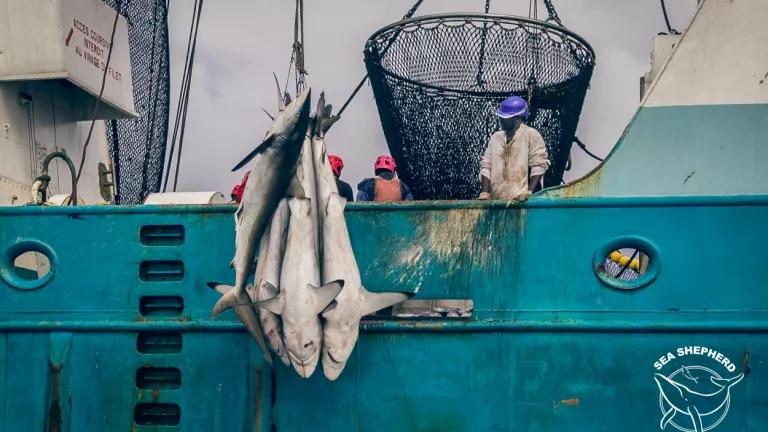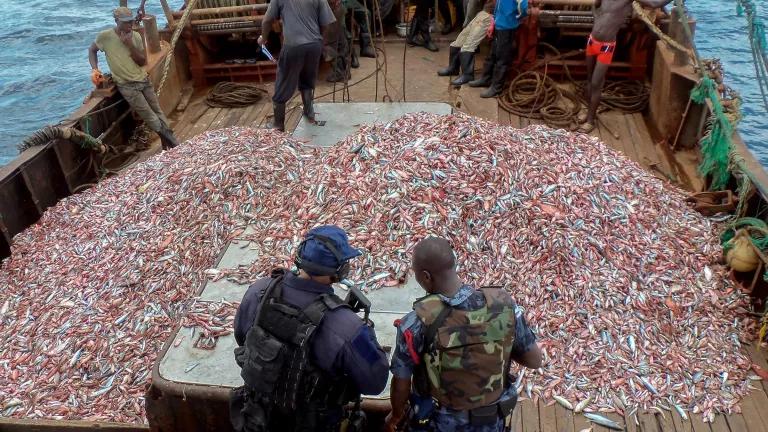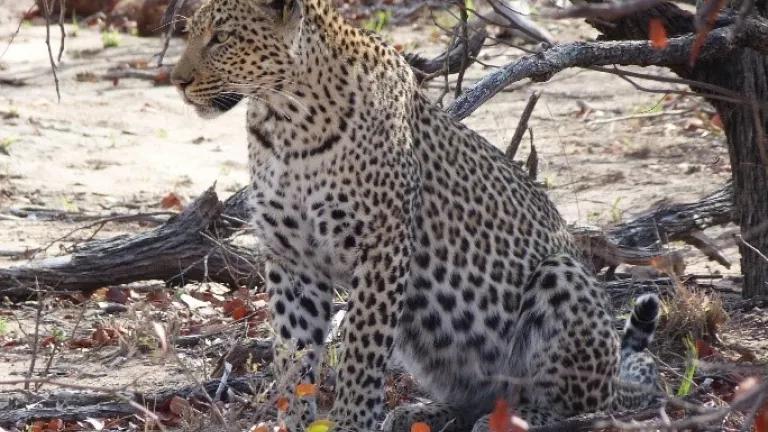6 Pros of the Wildlife Conservation and Anti-Trafficking Act
Congressmen John Garamendi (D-CA) and Don Young (R-AK) recently reintroduced a bi-partisan bill which aims to tackle the black-market trade in illegal wildlife and seafood products. Here are six reasons to support it.

Credit: Photo Courtesy of Sea Shepherd
Congressmen John Garamendi (D-CA) and Don Young (R-AK) recently reintroduced the “Wildlife Conservation and Anti-Trafficking Act (H.R. 6059), which aims to tackle the black-market trade in illegal wildlife and seafood products—the fourth most lucrative global crime—behind illicit drugs, human trafficking, and counterfeiting.
Here are six reasons to support this bi-partisan bill:
- Eases Prosecution of Wildlife Traffickers and Increases Penalties – H.R. 6059 makes serious wildlife trafficking violations predicate offenses (crimes that are components of more serious offenses) under federal racketeering and anti-organized crime laws (Racketeer Influenced and Corrupt Organizations Act (RICO) and the Travel Act), enabling such offenses to be investigated and prosecuted under statutes that were designed to target high-level organized crime and terrorist activity and increasing penalties. This builds on the Eliminate, Neutralize, and Disrupt (END) Wildlife Trafficking Act (enacted in 2016 and reauthorization bill recently introduced), which made wildlife trafficking a predicate offense under the federal money laundering criminal statute, as well as recommendations from the Presidential Task Force on Wildlife Trafficking. The bill also directs any civil penalties, fines, forfeitures, and restitution from such violations to wildlife conservation.
- Strengthens enforcement of illegal, unreported, and unregulated (“IUU”) fishing – H.R. 6059 makes serious violations for IUU fishing by foreign vessels or fraudulent seafood imports into the U.S. a predicate offense under federal money laundering criminal law, opening up avenues for enforcement and increasing penalties. It also directs funds received by the U.S. government for violations of the Magnuson-Stevens Act related to IUU fishing to fisheries enforcement. A new addition to the bill is its provision for U.S. embassies/consulates to reward whistleblowers for actionable intelligence on IUU fishing. IUU fishing is a $10-25 billion-dollar global industry that jeopardizes the sustainability of the world’s fish and degrades ocean ecosystem health. And the U.S. plays a big part in this, importing 2.4 billion dollars of IUU harvested seafood in 2019 alone according to the U.S. International Trade Commission. IUU fishing often goes hand-in-hand with transnational organized crime, human rights abuses such as human trafficking and forced labor, and weapons and drug trafficking. IUU fishing hurts U.S. fishermen who comply with fishing regulations—U.S. fishermen lose an estimated $1B annually in lost profits to IUU.
- Rewards and Protects Whistleblowers – The bill mandates that awards be paid to whistleblowers who report on wildlife trafficking, thus strongly incentivizing whistleblowing. It also directs agencies to raise awareness of such awards, particularly in wildlife trafficking hot spots like Tanzania, Laos, and India. A new addition to the bill is its provision of protections for whistleblowers from retaliation or discrimination. As the National Whistleblower Center's Scott Hajost wrote, “At its core, wildlife trafficking is a business. Whistleblowers have been incredibly effective in cracking down on financial and corporate crimes. It is time we apply this methodology to the wildlife sphere.”
- Provides Funding for Wildlife Conservation Programs – Currently, many international wildlife conservation programs are funded by Congressional appropriations on a yearly basis. But these funds aren’t usually enough and securing more money through this process is very difficult. H.R. 6059 would help fix this by providing additional dedicated funding streams to top-off funding received via appropriations. The bill does this by directing funds received by the U.S. government (e.g., fines, restitution, proceeds from sales of forfeited assets, etc.) from violations under the Endangered Species Act and Lacey Act pertaining to great apes, exotic birds, rhinoceroses, tigers, marine turtles, freshwater turtles, tortoises, and neotropical migratory birds, to the conservation of these species. It also directs funds received by the government from violations of the Marine Mammal Protection Act to marine mammal conservation and funds from violations of the Magnuson-Stevens Act related to shark finning (or fishery management plans for sharks) to shark conservation.
- Enhances Capacity to Fight Wildlife Trafficking in Hotspots – H.R. 6059 authorizes the U.S. Fish and Wildlife Service to station law enforcement officials and agency personnel in wildlife trafficking hotspots to help investigate trafficking cases, and train others to do the same.
- Makes the Pelly Amendment Certification and Prohibition Process Public – A new addition to the bill, this provision makes public the process by which the U.S. restricts wildlife imports from countries harboring nationals that engage in destructive fishing practices. Currently, this process is extremely opaque, diminishing the effectiveness of this critical tool in protecting our oceans.



